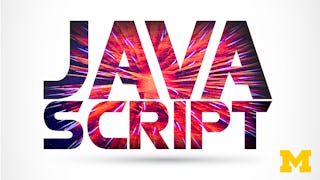- Browse
- Human Computer Interaction
Human Computer Interaction Courses
Human Computer Interaction courses can help you learn user interface design, usability testing, interaction design principles, and accessibility standards. You can build skills in user research, prototyping, and evaluating user experiences across various platforms. Many courses introduce tools like Figma, Sketch, and Adobe XD, that support creating and testing interfaces, along with methods for gathering user feedback and iterating on designs.
Popular Human Computer Interaction Courses and Certifications
 Status: Free TrialFree TrialU
Status: Free TrialFree TrialUUniversity of Michigan
Skills you'll gain: Qualitative Research, User Research, Usability Testing, User Centered Design, Research Methodologies, Needs Assessment, Interviewing Skills, Research, Human Computer Interaction, Data Collection
4.7·Rating, 4.7 out of 5 stars545 reviewsBeginner · Course · 1 - 3 Months
 Status: PreviewPreviewU
Status: PreviewPreviewUUniversity at Buffalo
Skills you'll gain: Computer Vision, Image Analysis, Computer Graphics, Color Theory, Digital Signal Processing, Applied Mathematics, Artificial Intelligence, Computer Programming, Matlab, Augmented Reality, Algorithms, Calculus, Probability & Statistics
4.2·Rating, 4.2 out of 5 stars1.8K reviewsIntermediate · Course · 1 - 4 Weeks
 Status: Free TrialFree TrialU
Status: Free TrialFree TrialUUniversity of London
Skills you'll gain: Unity Engine, Augmented and Virtual Reality (AR/VR), Virtual Environment, 3D Modeling, Animations, Non-Verbal Communication, Interaction Design, Human Computer Interaction, Psychology, Artificial Intelligence
4.4·Rating, 4.4 out of 5 stars86 reviewsIntermediate · Course · 1 - 4 Weeks
 Status: Free TrialFree TrialU
Status: Free TrialFree TrialUUniversity of Michigan
Skills you'll gain: Javascript, Interactive Design, HTML and CSS, Web Design and Development, Web Content Accessibility Guidelines, Event-Driven Programming, User Interface (UI), Web Development, Data Structures, Debugging, Data Validation
4.7·Rating, 4.7 out of 5 stars7.4K reviewsBeginner · Course · 1 - 4 Weeks
 Status: FreeFreeP
Status: FreeFreePPrinceton University
Skills you'll gain: Microarchitecture, Computer Architecture, Hardware Architecture, Computer Systems, Computer Engineering, Distributed Computing, Operating Systems, Performance Tuning, Scalability
4.7·Rating, 4.7 out of 5 stars3.8K reviewsAdvanced · Course · 3 - 6 Months
 Status: Free TrialFree TrialU
Status: Free TrialFree TrialUUniversity of London
Skills you'll gain: Responsive Web Design, HTML and CSS, Web Design, Human Computer Interaction, Interaction Design, Web Design and Development, Bootstrap (Front-End Framework), Usability, User Interface and User Experience (UI/UX) Design, Wireframing, Cascading Style Sheets (CSS), Data Structures, Web Components, Javascript
4.6·Rating, 4.6 out of 5 stars1.9K reviewsMixed · Course · 1 - 3 Months
 Status: Free TrialFree TrialU
Status: Free TrialFree TrialUUniversity of London
Skills you'll gain: Arithmetic, Applied Mathematics, Computer Science, Computational Thinking, General Mathematics, Mathematical Theory & Analysis, Algebra, Cryptography, Systems Of Measurement
4.2·Rating, 4.2 out of 5 stars268 reviewsBeginner · Course · 1 - 4 Weeks
 Status: Free TrialFree Trial
Status: Free TrialFree TrialSkills you'll gain: Network Security, Hardening, Network Protocols, Cloud Security, Network Architecture, Intrusion Detection and Prevention, TCP/IP, Vulnerability Assessments, Computer Networking, Cybersecurity, Network Infrastructure, Firewall, Cloud Computing, Virtual Private Networks (VPN), Encryption
4.8·Rating, 4.8 out of 5 stars7K reviewsBeginner · Course · 1 - 4 Weeks
 Status: Free TrialFree TrialU
Status: Free TrialFree TrialUUniversity of London
Skills you'll gain: Virtual Reality, Interaction Design, Augmented and Virtual Reality (AR/VR), Virtual Environment, User Interface (UI), Human Computer Interaction, Display Devices, Game Design, Human Machine Interfaces, Usability, User Experience Design
4.6·Rating, 4.6 out of 5 stars135 reviewsIntermediate · Course · 1 - 4 Weeks
 Status: Free TrialFree TrialM
Status: Free TrialFree TrialMMathWorks
Skills you'll gain: Model Evaluation, Computer Vision, Model Deployment, Anomaly Detection, Convolutional Neural Networks, Image Analysis, Transfer Learning, Matlab, Deep Learning, Artificial Neural Networks, Applied Machine Learning, PyTorch (Machine Learning Library), Data Preprocessing, Classification Algorithms, Data Visualization, Data Synthesis, Performance Tuning, Data Analysis
4.9·Rating, 4.9 out of 5 stars34 reviewsBeginner · Specialization · 1 - 3 Months
 Status: Free TrialFree TrialB
Status: Free TrialFree TrialBBoard Infinity
Skills you'll gain: Workplace inclusivity, Recruitment, Talent Recruitment, Professional Development, Virtual Teams, People Development, Cultural Diversity, Human Capital, Professional Networking, Team Building, Lifelong Learning, Innovation, Decision Making, Employee Onboarding, Change Management, Time Management, Learning Strategies, Emerging Technologies, Branding
4·Rating, 4 out of 5 stars128 reviewsIntermediate · Specialization · 1 - 3 Months
 Status: Free TrialFree TrialU
Status: Free TrialFree TrialUUniversity of California San Diego
Skills you'll gain: Graphic and Visual Design, Usability Testing, User Interface (UI) Design, Design, Experimentation, Interaction Design, Human Computer Interaction, User Experience Design, Prototyping, Design Elements And Principles, Layout Design, Human Centered Design, Web Design and Development, Typography, Design Research, A/B Testing
4.6·Rating, 4.6 out of 5 stars1.4K reviewsBeginner · Course · 1 - 4 Weeks
In summary, here are 10 of our most popular human computer interaction courses
- Understanding User Needs: University of Michigan
- Computer Vision Basics: University at Buffalo
- Building Interactive 3D Characters and Social VR: University of London
- Interactivity with JavaScript: University of Michigan
- Computer Architecture: Princeton University
- Responsive Web Design: University of London
- Mathematics for Computer Science: University of London
- Connect and Protect: Networks and Network Security: Google
- 3D Interaction Design in Virtual Reality: University of London
- Deep Learning for Computer Vision: MathWorks










